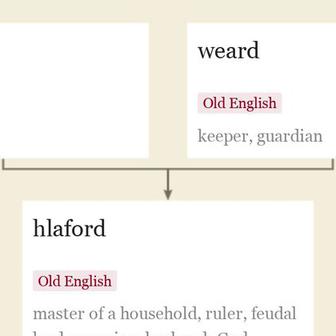landlord n.
early 15c. (late 13c. as a surname), "
Entries linking to landlord
Old English lond, land, "
Etymological evidence and Gothic use indicates the original Germanic sense was "

mid-13c., laverd, loverd, from Old English hlaford "
Compare lady (literally "
Lord's Prayer is from 1540s. Year of our Lord is from late 14c. (translating Latin anno domini) in reference to the incarnation of God in Christ. Lord knows (who, what, why, etc.), expressing a state of ignorance, is from 1711. Lord of the Flies (1907) translates Beelzebub (q.v.); William Golding's book was published in 1954. To drink like a lord is from 1620s.
also slum-lord, "
updated on April 29, 2016